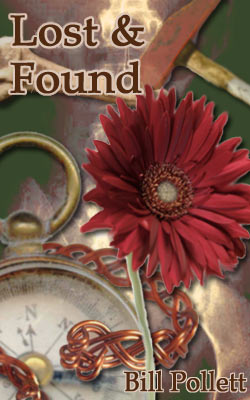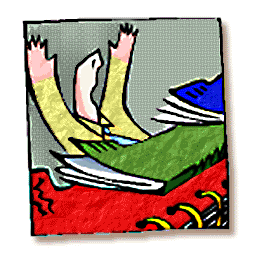 Do you love to read? Are you a proverbial bookworm, with the bookish reputation and the face of an owl? You don’t need to look like an owl to love books, but you must peer at books regularly, like on buses, during lunch hours, before bed, and in restaurants. I often read while waiting for meals, while waiting for a movie to start at a theatre, while waiting in an office?basically, any chance I get. I even venture as far as reading two pages apiece from six books nightly, almost without fail. Therefore, no stretch of the imagination told me that reading a book titled Careers for Bookworms & Other Literary Types would appeal to not only me, but to a large portion of academics who love to learn?and love to read. If you love to read, this article will surely enlighten you to job bounteous job prospects.
Do you love to read? Are you a proverbial bookworm, with the bookish reputation and the face of an owl? You don’t need to look like an owl to love books, but you must peer at books regularly, like on buses, during lunch hours, before bed, and in restaurants. I often read while waiting for meals, while waiting for a movie to start at a theatre, while waiting in an office?basically, any chance I get. I even venture as far as reading two pages apiece from six books nightly, almost without fail. Therefore, no stretch of the imagination told me that reading a book titled Careers for Bookworms & Other Literary Types would appeal to not only me, but to a large portion of academics who love to learn?and love to read. If you love to read, this article will surely enlighten you to job bounteous job prospects.
Work in a Library
I encountered one woman who fits the role of librarian to a tee. With a tight bun in her otherwise longish hair, perfect English in a pseudo-British accent, the calf length skirts, and a never-ending focus on unceasingly shelving books, this woman epitomizes the role of a librarian. I once asked her how she became the perfect, loyal librarian, to which she responded that It’s her way of keeping her job. Ideal employee.
Eberts amd Gisler highlight the enormity of libraries in Canada: over 2, 500 libraries, although Canadian schools are gradually eliminating school libraries. Eberts and Gisler reveal the good news: an assortment of specialized libraries prevail, including pharmacological, medicine, law, transportation, and religion-focused libraries. Typically, a librarian requires a master’s degree in library science with continuing education underway, and sometimes requires even a PhD.
Work at a Book Publishing Company
I longed to start a publishing company, and even drafted a proposal to participate in a class dedicated to helping budding entrepreneurs write business plans and access loans. My graphic design skills, my love for learning programs such as InDesign and anything Adobe, and my desire to promote the books of people I love, led me to entertain the idea of not just working for a publishing company, but starting one on a small scale.
The jobs at publishing companies range from executive editor (at the top of the rung) to an editorial assistant (at the bottom of the rung) (Eberts & Gisler, 2008). Other careers, according to Eberts and Gisler include indexing as a freelancer (yes, referencing page numbers to topics at the back of the book), serving as a literary agent, writing book reviews, a bookstore owner, and a retail bookstore staff member.
Work at a Magazine
I love writing for The Voice magazine. I enjoy writing about topics that impact students on some scale. The pay helps out and the student writers and copyeditor delight me to no end. I wouldn’t trade the writing role for a ride in a limousine to Banff springs even. Yet, working at a newspaper is another story. The thought of reporting on crime, slamming individual reputations, and sensationalizing, or otherwise decontextualizing, everyday events grinds my nerves. Working at a magazine, however, poses some potential for writing in specialized areas that stimulate the learning process.
1,962 Canadian magazines exist with a burgeoning market in bridal magazines. You could work as an editor in chief down to an editorial assistant. Canadian magazine editors make roughly $44,000 on average.
Work in the Move or Television Industry
I worked at a university television station, and loved the experience. Harnessing the power of a broadcast quality camera and editing suite suited me fine. Even more so, the research process, finding quality stories, usually on professorial research, thrilled me. My director even informed me that a documentary would well suit my style of production.
In television news, the reporter typically takes a position before getting the research. Not me. I found a position only after wading through as much data and research as I could possibly find.
Radio show hosts, movie script typists, story analysts, script consultants, a television story editor, a television talk-show producer, or a news anchor denote the types of careers available for the more glamorous industries. But you will want to relocate to either Southern California, New York, or Vancouver to penetrate these markets (Ebert & Gisler, 2008).
Work as a Researcher
Working as a market researcher incontrovertibly marked one of the happiest career moments of my life. I longed to get to work to find out what the survey for a festival revealed, or what the survey for the City showed. I couldn’t get enough of reading the SPSS statistical data, of creating PowerPoints to display the revelations, of writing literature reviews. Market research tasted like heaven to me.
Research jobs may include working at a think tank, such as the Fraser Institute, C.D. Howe Institute, Institute for Research on Public Policy, and so forth in Canada. Archivists who maintain and preserve records also involve research and reading. Curators (for example, museum curators) gain access to, display, and maintain objects or relics of intrigue, often pertaining to a particular area of specialization. If you love history, a job as a historian might pique your interest, although jobs in this field are competitive. My favourite of the research careers: information broker, where you do research through mainly libraries and databases for customers–be forewarned, however: you’ll need a master’s degree in library sciences to gain credibility in this field (Eberts & Gisler, 2008).
So, there you have it: an assortment of careers for the passionate reader. Drop that book momentarily, and scour the want ads. The perfect job for the avid reader awaits you.
References
Ebert, M. & Gisler, M. (2008). Careers for Bookworms & Other Literary Types. New York, NY: McGraw Hill.


